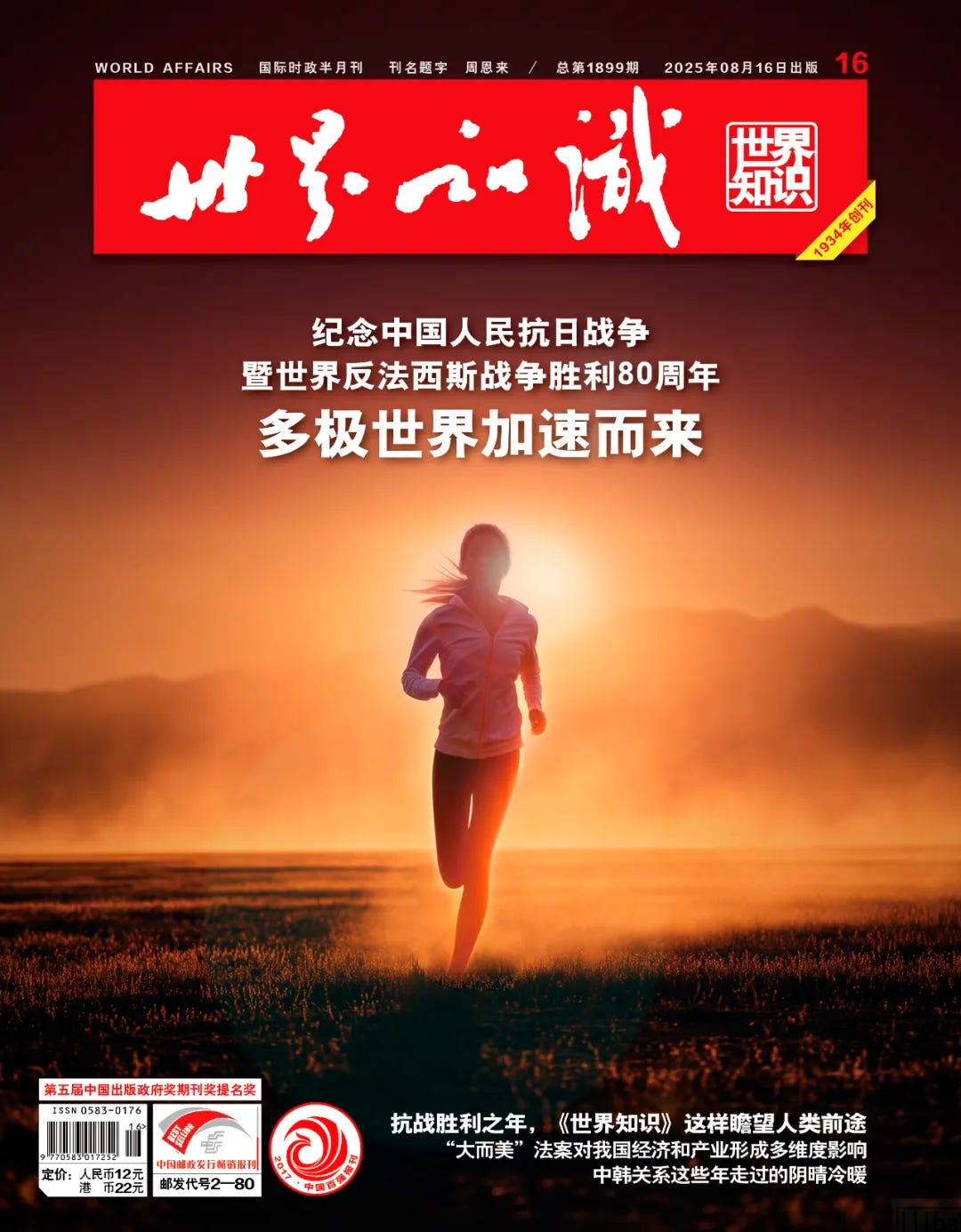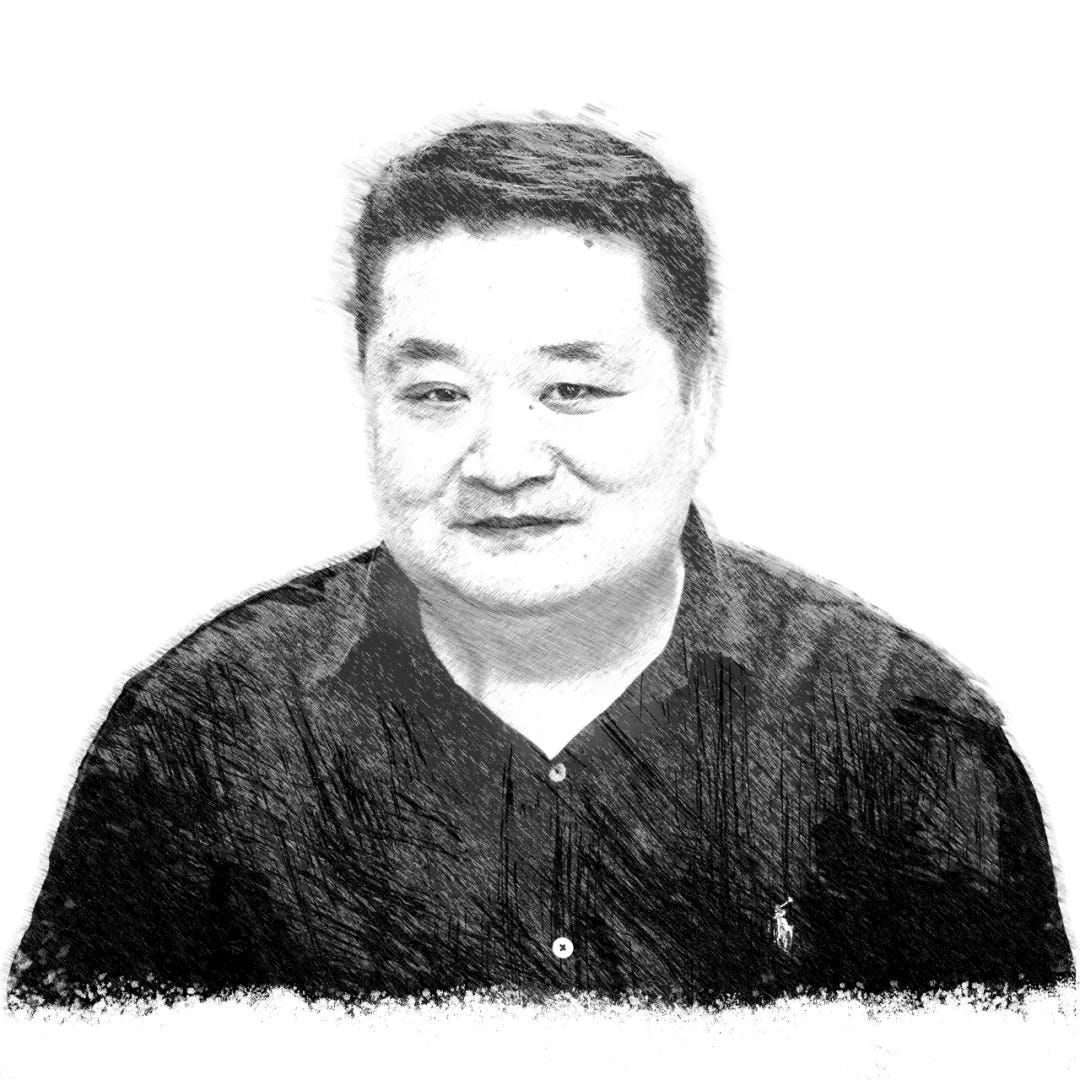Diao Daming: Beijing should be more active to steer China-U.S. engagement
Renmin University scholar believes that a U.S. moving away from exceptionalism and interventionism creates space for China to stabilise their relations and adjust the global order to its vision.
This is our third article translated from the special series in this year’s 16th issue of 世界知识 World Affairs, a Chinese-language magazine published by World Affairs Press under China’s Ministry of Foreign Affairs. The series features contributions from some of China’s “foremost scholars,” according to the magazine, on the theme “The Multipolar World Is Coming at Speed.”
This article is written by Diao Daming, Professor at the School of International Studies and Chair of the Department of Diplomacy, Renmin University of China. It is also available on World Affairs’ official WeChat blog.
刁大明:把塑造中美关系和国际秩序的“剧本”掌握在我们自己手中
Diao Daming: China should take the “script” of shaping China-U.S. relations and international order
As one of the founders and a long-time dominant force in the post-war international order, the United States has experienced a significant shift in its approach to the current international order. Some argue that the U.S. has abandoned this order, while others contend it seeks to revise it. In my view, it is doing both.
Both the Republican and Democratic Parties now believe that the existing international order is increasingly failing to serve the need to maximise U.S. interests and is increasingly becoming less favourable for maintaining American hegemony. Specifically regarding Trump, during his first term, he was constrained by the establishment and was unable to fully pursue his desired changes, revising more aspects of the international order than abandoning them. However, in his second term, surrounded by hand-picked loyalists, Trump enjoys greater freedom to act, abandoning more elements of the international order than he revises, though he still can’t completely discard it.
What kind of international order does the U.S. favour today? In Trump’s view, there may be no international order, only America in the world. Some of his actions since returning to power clearly aim to pull the U.S. back to the late 19th and early 20th centuries. During the presidency of William McKinley (1897–1901), whom Trump admires, the U.S. became the world’s leading wealth generator and expanded its territory through wars such as the Spanish–American War. In the 1920s, under President Calvin Coolidge (1923–1929), the U.S. experienced the “Coolidge Prosperity,” with its GDP per capita, according to some claims, reaching “the highest in the world,” or at least among the top five globally, based on available data. By that time, the Monroe Doctrine had been in place for around a century. The U.S. maintained absolute control over the Americas while having limited involvement in European affairs—then the centre of world politics—and bore relatively few international responsibilities.
If the Republican Party remains in power for the long term, the United States may abandon more principles and textures of the current international order, pushing the world into—or back toward—a survival-of-the-fittest, law-of-the-jungle, multipolar state. In such a scenario, the world would be divided into multiple geopolitical blocs. In regions where U.S. interests are less directly at stake, the most powerful country would take charge of maintaining order. Meanwhile, in blocs where U.S. interests are paramount, America would exert every effort to play a leading role in maximising its interests. If the Democratic Party returns to power after 2028, the U.S. may instead focus more on revising the current international order, reviving a “Cold War narrative” to shape adversaries and reinforce the confrontational characteristics of the world.
Does the United States have the capacity to steer the international order in the direction it desires? The answer would be no, unless it can mobilise other forces to help enact its envisioned “script” for the future international order. Internally, it will take time for the U.S. to reach a basic consensus—or fail to do so—on the policy direction currently promoted by conservatism. Externally, how the world will respond to the U.S.-led agenda remains highly uncertain. Will more geopolitical conflicts emerge, thereby hindering the pace of U.S. strategic adjustments? That is highly probable. Will European countries willingly embrace a conservative path and join the U.S. in abandoning international responsibilities? That seems unlikely. Much also depends on systemic resonance: many participants or “players” within the global system are unlikely to allow the international order to undergo radical change solely due to shifts on the U.S. side.
What kind of country will the United States become in the future international order? The brief “new world order” of the early 1990s, characterised by unipolar hegemony, is unlikely to reappear. However, the U.S. is also unlikely to turn entirely inward. In my view, it is more likely to evolve into a relatively “normal” country, with “normal” here also implying a sense of “ordinary.”
The United States is approaching its 250th anniversary. Reflecting on its history, particularly its interactions with the world, the first 125 years saw a nation solely focused on itself, with little consideration for the broader world beyond its own interests. However, the subsequent 125 years marked its transformation into a truly “bi-coastal nation” with global interests, engaging more with Europe and playing a more active role in shaping and even dominating the international system. Through its global involvement, the U.S. has sought to validate its domestic governance model, gradually developing its own concept of globalism as it ascends to global leadership.
Moving forward, the U.S. may no longer be as eager to prove its “rightness” or “exceptionalism,” or promote itself as a symbol of “manifest Destiny” or a “city upon a hill.” Instead, it is likely to adopt a more pragmatic approach, addressing international issues based on concrete national interests, acting where necessary and refraining where not, like other major powers. An early sign of this shift came during President Trump’s visit to Saudi Arabia in May, when he declared that the U.S. would abandon interventionism.
Such a United States has issued an “invitation” to other countries, especially to major powers, based on the “script” in Trump’s hands, which, in a sense, is also a “temptation of power.”
Faced with such changes in the U.S. and their impact on international politics, how should China position itself? In the short term, opportunities outweigh challenges. China can secure a broader space on the global stage and take on more international responsibilities that align with its own interests. In the medium to long term, however, China must reflect deeply on the extent to which the U.S. vision of a “global division of labour,” heavily influenced by “major-power determinism” and a “law of the jungle” mentality, conflicts with China’s principles and values. Based on this reflection, China must consciously resist certain “temptations of power,” adhere to the fundamental direction of major-country diplomacy with Chinese characteristics, and continue to advance the ideal and aspiration of building a community with a shared future for mankind.
If the United States truly evolves in the direction Trump is pushing, China and the U.S. may not plunge into the abyss of a “new Cold War” as rapidly as during the Trump 1.0 and Biden eras. Instead, new opportunities for coordination and cooperation could emerge at both bilateral and global levels. Recently, some American scholars have been discussing whether, as the Trump 1.0 era ushered in a new age of major-power competition, the Trump 2.0 era might shift from great-power rivalry to great-power coordination. I think there is scope for possibilities in this regard.
In Trump 2.0’s America, the term “multipolarity” has also become commonplace. The “multipolarity” they refer to is not the same as what China advocates, but it is still a step forward from clinging to a “new Cold War” mentality characterised by bipolar confrontation and zero-sum competition. For China, this likely means that the country should seize the opportunity to stabilise China-U.S. relations as much as possible, continuing to resolutely safeguard China’s core interests where they are at stake, while striving for coordination and cooperation in areas where both countries share common interests. The goal would be to avoid systemic collapse due to rivalry in critical domains. At the same time, China should continue shaping the international order according to its own “script,” steering it toward the multipolarity that China advocates.
As an old Chinese saying goes, “At the first drumbeat, soldiers’ spirits were raised. On the second, their spirits declined. Finally, on the third, their spirits were exhausted.” The U.S. strategy for competing with China is now at the second stage, where spirits have declined. The Trump administration is reexamining itself and rethinking its approach to China, making adjustments compared to its reckless actions during the first term. The fundamental goal of the Trump-led MAGA movement, in terms of foreign strategy, is to change the U.S. by reshaping the world. It cannot be said to be entirely targeting China; rather, China-related issues are more like tools in Trump’s hands. China is now more confident, experienced, and strategic, increasingly adept at managing and navigating challenges from the U.S., and steadily taking the “script” of China-U.S. relations.






